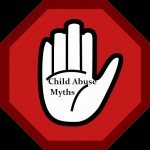Nick Wilkinson has spent the last 15 years working in the behavioral health field working with at risk teens and youth. Nick is a certified EMT & MA as well. Working everywhere from group homes to residential treatment facilities Nick has become a master at verbal deescalation techniques and has a unique understanding of teens in crisis. You can follow Nick at his blog/website www.ActingNotReacting.com and are encouraged to ask questions and request topics for discussion as well. You can purchase Nick's first published book From Here To Obesity on Amazon.com http://www.amazon.com/From-here-Obesity-Nicholas-Wilkinson/dp/1257090720
- |
- Web
- |
- |
- More Posts (14)
 Everybody on the planet gets in bad moods sometimes. When it comes to teenagers and mood swings most parents know that bad moods can be par for the course. Changing hormone levels, peer pressure, and increasing social obligations are just a few reasons a teen could suddenly shift into a bad mood but sometimes there is a little more going on that just bad moods.
Everybody on the planet gets in bad moods sometimes. When it comes to teenagers and mood swings most parents know that bad moods can be par for the course. Changing hormone levels, peer pressure, and increasing social obligations are just a few reasons a teen could suddenly shift into a bad mood but sometimes there is a little more going on that just bad moods.
There are a few things you can look out for if you think your teen might be suffering from more than just a few bad moods. You might notice that your teen has long periods of irritability or excessively complains about feeling bored, sometimes, these can be signs of depression and might need a little more support.
Being sad or in a bad mood is perfectly normal from time to time and something everybody goes through at one point or another but DEPRESSION is more than just being in a bad mood because depression can escalate quickly and it can lead to excessive anger, irritation, and even thoughts of your teen hurting themselves or someone else. In these situations it’s always best to talk to someone on a professional level to make sure you get the appropriate amount of support for your teen and too educate yourself as well.
Your family doctor should be able to help find you someone who can help assist you and your teen and get them back on the right path.
Parents please also remember that your response to these situations is going to determine your teens future outlook on them as well. If you are “against therapy” your teen will pick up on that and may decide they are as well. If depression and even suicide threats or actions are treated as shameful or met with aggression that is going to impact your teens decisions in the future, both when they are alone and when they are internally debating the decision to include you in their thought process. Try to stay calm and strong. Be open minded to finding solutions and try to put any personal feelings aside until the time is right.
Anyone, anytime, can call the national suicide prevention hotline at (800) 273-TALK for help.
Tiny URL for this post:












